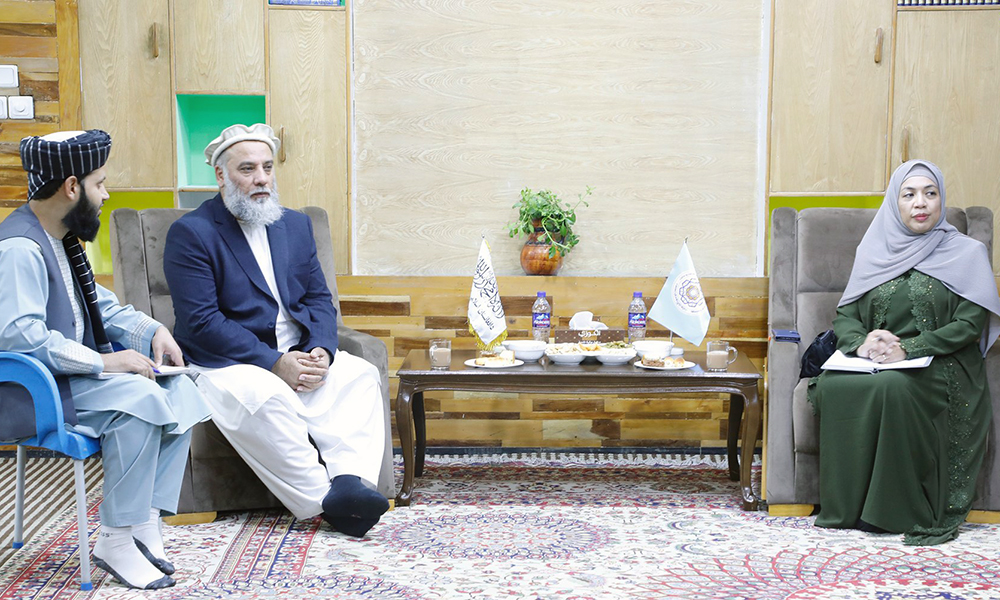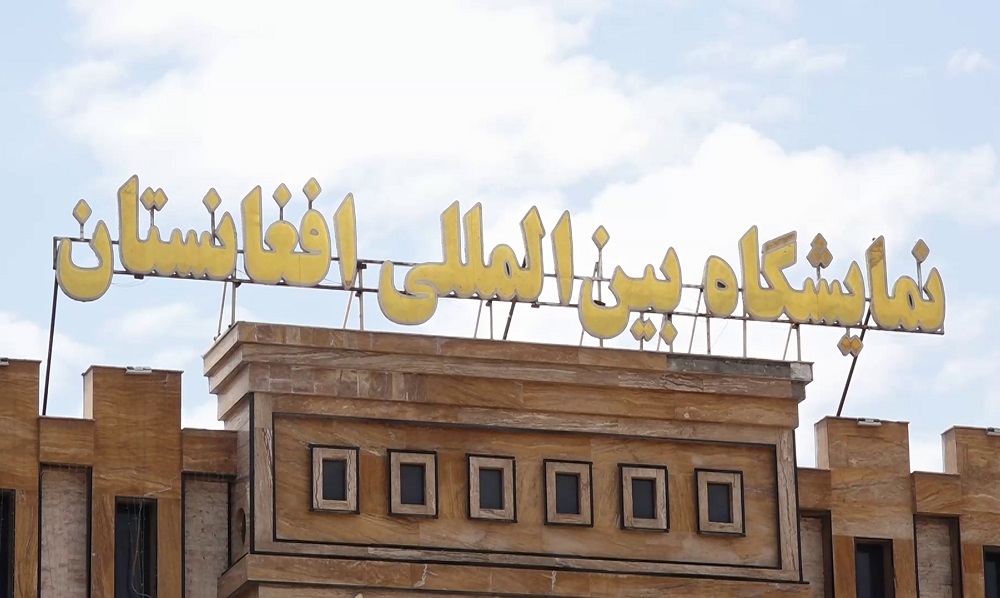Business
Western Union, MoneyGram resume services to Afghanistan

Western Union Co and MoneyGram International Inc resumed money-transfer services to Afghanistan on Thursday, moves in line with a U.S. push to allow humanitarian activity to continue after the Taliban’s takeover, Reuters reported.
According to the report pair suspended services in Afghanistan more than two weeks ago after the Islamist militia captured Kabul at lightning speed.
But an easing of security concerns following the completion of the Taliban’s conquest of the country opened the way for the reopening this week of banks, which the money-transfer firms rely on to dispense and collect funds.
Jean Claude Farah, Western Union’s president in Asia, Europe, the Middle East and Africa, told Reuters the reopening of banks, plus a push by the United States to facilitate humanitarian assistance to the Afghan people, had given the American company confidence to resume services on Thursday.
“Much of our business involving Afghanistan is low-value family and support remittances that support basic needs of the people there, so that’s the grounding that we have and why we want to reopen our business,” Farah said.
“We’ve engaged with the U.S. government, which has conveyed that allowing humanitarian activities, including remittances, to continue are consistent with U.S. policy.”
The flow of funds from migrant workers overseas is a key lifeline for many Afghans and has helped the economy of one of the world’s poorest nations weather years of violence and instability. The United Nations says about half of the population requires aid amid the second drought in four years, Reuters reported.
In a statement, MoneyGram said following guidance from the U.S. government, it was resuming its services in coordination with its partners in the country and the Afghanistan Banks Association.
“We recognize that remittances play a pivotal role in the livelihood and daily needs of the Afghan people,” MoneyGram said.
According to Reuters yet U.S. President Joe Biden’s administration has said it is committed to allowing humanitarian work to continue in Afghanistan.
“We are continuing to engage with the U.S. government and others to understand their policies and what type of longer term regulatory framework will be put in place as it relates to the Taliban,” Western Union’s Farah said.
Remittances to Afghanistan reached $789 million in 2020, around 4% of the country’s gross domestic product (GDP), the World Bank estimated, down from $829 million in 2019.
Such flows have historically played an important role in supporting financial stability. Along with international grants and resilient exports, remittances helped Afghanistan’s current account surplus reach 14.2% of GDP in 2020, the International Monetary Fund said in June.
In recent days, Afghanistan’s central bank has provided funds of hundreds of thousands of dollars to each bank that requested liquidity, a senior banker told Reuters. But the financial system and economy could be in peril unless the Taliban can access the central bank’s roughly $10 billion in assets, which are mostly outside of the country.
Farah said Western Union had been assured by the banks it partners with in Afghanistan that they had sufficient cash to pay receivers of remittances.
“Some of them have indicated at some locations that they have good liquidity in afghani and at least some liquidity in U.S. dollars as well, we allow payouts in both, to resume remittances,” he added.
Before it shut down services on Aug. 16, around 45% of each transaction sent via Western Union to Afghanistan was $200 or less, he said.
Western Union said on Thursday that payouts of any funds sent to Afghanistan were available in select locations. Outbound services, money sent from there to other countries, remained suspended, it added.
Business
Azizi calls on Malaysian investors to invest in Afghanistan

Nooruddin Azizi, Acting Minister of Commerce and Industry, met with representatives from the ministries of foreign affairs, defense and interior of Malaysia, along with other senior officials, on Wednesday and called on Malaysians to invest in Afghanistan.
The visiting delegation is being led by senior diplomat Dr. Shazelina Zainul Abidin.
According to the IEA’s foreign ministry, the two sides discussed bilateral trade, holding a business communication conference to strengthen trade relations between the two countries, the trade balance between Afghanistan and Malaysia, and creating a market for Afghan products, including carpets, cotton, and minerals.
According to the ministry, at the end of the meeting, the Acting Minister emphasized the increase of investment from regional countries in Afghanistan and called on Malaysian investors to also invest in Afghanistan.
Business
Afghanistan starts exporting via railway to Turkey

The Ministry of Interior says that Afghanistan has started exporting goods to Turkey via the Herat-Khaf railway line.
In a post on X, the ministry said: “Afghanistan’s exports to Turkey started in a calm atmosphere through the Herat-Khaf railway line.”
The ministry added that one train will run daily for a month and then two trains will run daily.
According to the ministry, the security of Khaf-Herat railway line is provided by the guards of the National Public Protection Agency.
Khaf-Herat railway project not only connects Iran and Afghanistan by rail, but also completes a 2,000-kilometer route along the east-west rail corridor from China, through Uzbekistan, to Afghanistan, to Iran, and on to Turkey and Europe.
As a landlocked country, this railway network will provide a safe route to connect with Europe via Iran’s railway network and Iran’s southern ports.
This railway line is strategic for trade between Iran and Afghanistan and will allow six million tons of goods to be sent between the two countries.
Business
Afghanistan, Kazakhstan to hold joint expo in Kabul

A joint expo between Afghanistan and Kazakhstan will be held in Kabul in the next four days, officials said on Sunday.
Officials of the Ministry of Industry and Commerce said that the two-day expo will be held for the purpose of expanding and strengthening trade relations between the two countries.
“This expo will be held as a follow-up of the Kazakh-Afghan international expo, which was held in the city of Astana, Kazakhstan, with the participation of a large delegation of the government and the private sector of the Islamic Emirate of Afghanistan,” Abdulsalam Javad Akhundzadeh, the spokesman of the Ministry of Industry and Commerce, said.
“At this expo, domestic products from different sectors of Afghanistan and the Republic of Kazakhstan will be put on display for two days.”
According to officials, 40 large Kazakh companies, and 40 large Afghan companies will exhibit their products.
Mohammad Saber Latifi, head of the Afghanistan International Expo Center, said that fruits, minerals and commercial services will be displayed at the expo.
During the expo, various memorandums of understanding for the trade of goods are also expected to be signed by companies.
-

 Latest News4 days ago
Latest News4 days agoPakistan’s frontiers minister stresses ‘dignified’ return of Afghan refugees
-

 Regional3 days ago
Regional3 days agoIranian president lands in Pakistan for three-day visit to mend ties
-

 Climate Change4 days ago
Climate Change4 days agoMassive river flooding expected in China, threatening millions
-

 Latest News4 days ago
Latest News4 days agoChinese keen to invest in Panjshir-Kabul water conduit project
-

 Latest News2 days ago
Latest News2 days agoRashid Khan named AWCC’s brand ambassador
-

 World4 days ago
World4 days agoTwo Japan navy helicopters crash, one body found, 7 missing
-

 Sport3 days ago
Sport3 days agoKolkata beat Bengaluru by one run in IPL as Kohli fumes at dismissal
-

 Sport3 days ago
Sport3 days agoACL: Aino Mina 3-0 Istiqlal Kabul; Attack Energy 3-0 Khadim
























